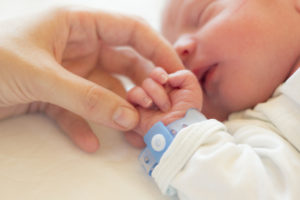 In the United States, the number of babies born with neonatal abstinence syndrome has increased 123 percent from 2009 to 2014. This syndrome happens when women inject opioids during pregnancy. In the year 2014, 30,445 babies were born addicted to opioids and spent the first months of their lives battling withdrawal symptoms such as tremors, irritability, sleep problems, and high-pitched screaming.
In the United States, the number of babies born with neonatal abstinence syndrome has increased 123 percent from 2009 to 2014. This syndrome happens when women inject opioids during pregnancy. In the year 2014, 30,445 babies were born addicted to opioids and spent the first months of their lives battling withdrawal symptoms such as tremors, irritability, sleep problems, and high-pitched screaming.
The question most doctors and mothers ask is: how will neonatal abstinence syndrome effect the baby physically and mentally in the long run? This article sites a study where researchers tracked nearly 100 children and their mothers for 36 months. Hendrée Jones, the executive director at UNC Horizons and the co-author of the study, expressed that there were reasons to be optimistic about the children’s fates. “The children through time tended to score within the normal range of the tests that we had,” Jones said.
Dr. Stephanie Merhar, a neonatologist at Cincinnati Children’s Hospital, researched this topic and after studying 87 infants, she found that the children were testing within the normal range of development; she also noted, though, that the risk of serious delays is still very high, and children need to be monitored closely because the long-term affects are still unknown.
While a cause and effect correlation cannot be established yet, Dr. Lauren Jansson, the director of pediatrics at the Center for Addiction and Pregnancy at Johns Hopkins School of Medicine, believes that the most promising treatment for children who are exposed prenatally to substances is to treat their mothers to overcome their own addictions.

Leave a Reply